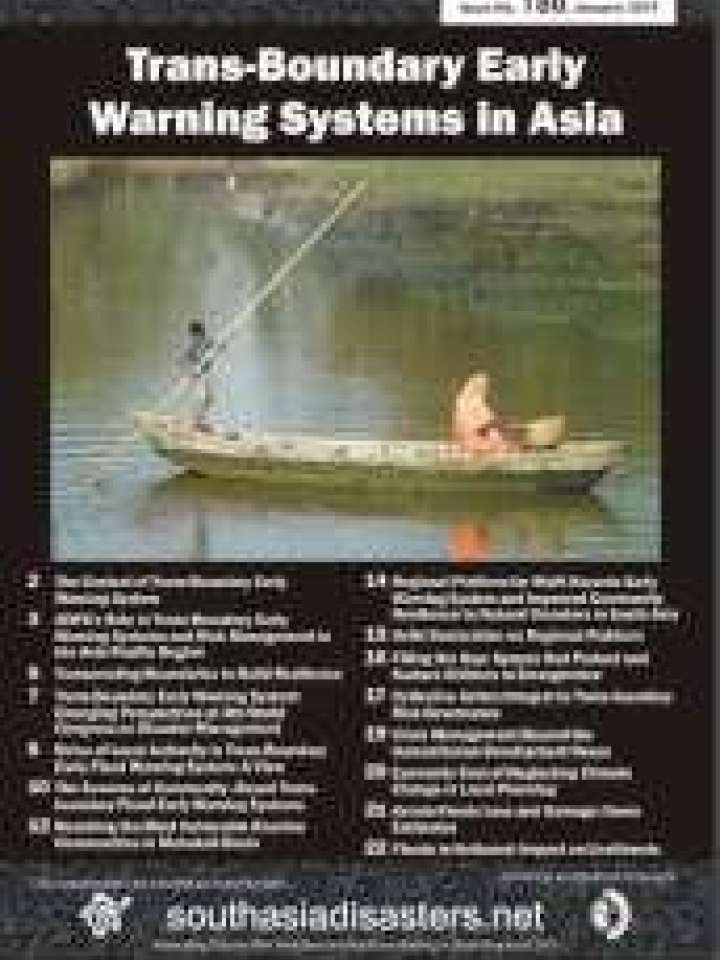Trans-boundary early warning systems in Asia
This publication focuses on the important theme of regional cooperation for DRR in Asia. Community based trans-boundary early warning systems for flood risk have been given special importance in this issue because of their significance in South Asia.
Such systems enable local communities to utilise local resources and capacities to prepare and respond to and enhance their resilience to flooding risk. Some of the other relevant themes explored in this issue include livelihood recovery, economic cost of climate change and protecting children in emergencies.
This issue's contents include: (i) The context of trans-boundary early warning systems; (ii) ADPC's role in trans-boundary early warning systems and risk management in the Asia-Pacific region; (iii) Transcending boundaries to build resilience; (iv) Trans-boundary early warning system: emerging perspectives at 4th World Congress on Disaster Management; (v) Roles of local authority in trans-boundary early flood warning system: a view; (vi) The success of community–based trans-boundary flood early warning systems; (vii) Reaching the most vulnerable riverine communities in Mahakali Basin: community-based flood early warning systems; (viii) Regional platform for multi hazards early warning system and improved community resilience to natural disasters in South Asia; (ix) Delhi declaration on regional platform; (x) Filling the gap: spaces that protect and nurture children in emergencies; (xi) Collective action integral to trans-boundary risk governance; (xii) Crisis management beyond the humanitarian-development nexus; (xiii) Economic cost of neglecting climate change in local planning; (xiv) Kerala floods loss and damage: some estimates; and (xv) Floods in Kuttanad: impact on livelihoods.
Explore further
